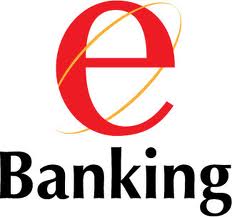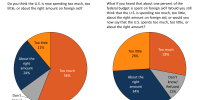Introduction:
Electronic banking is relatively new concept in Bangladesh. Formerly only the foreign banks operating in Bangladesh like Standard Chartered Bank, HSBC, etc provided it. These foreign banks managed to gain competitive advantage with the introduction of electronic banking for the first time in Bangladesh. As result the local commercial banks started to loose their market to these foreign commercial banks. So they reacted very quickly. First time it was combined, now some of the banks are offering Electronic-banking services even solely. Eastern Bank Ltd. is the leading local commercial banks in Bangladesh to offer world-class electronic banking services. In terms of adoption of E-Banking we can divide our banking sector in to three basic categories
- Classical Banks.
- Modern Banks.
- Electronic Banks.
Classical Banks:
Classical bank includes those commercial banks, which don’t provide or provide very little E-banking facilities. In our country these category mainly includes mainly –
- Nationalized Commercial banks:
- Sonali Bank
- Janata Bank
- Agrani bank
- Rupali Bank
- Specialized banks:
- Bangladesh Shilpa Bank (BSB)
- Rajshai Krishi Unnayan Bank
- Bank of Small Industries and Commerce Bangladesh Ltd.
- Bangladesh Shilpa Rin Sangstha (BSRS)
- Bangladesh Krishi Bank (BKB)
- Local private commercial banks:
- The Oriental bank ltd.
- First security bank ltd.
- Social investment bank ltd.
- Al Arafah bank
- The Standard Bank Ltd.
- Bangladesh Commerce Bank Ltd.etc
These banks are termed as classical because this Bangladeshi banks still now mainly follows the manual procedure for securing the valuable information and assets of customers. Except Agrani bank and Janata bank these banks are still in infant level automation. Both of these two banks has launched ATM card sharing with other banks and EFTS like Ready cash, Q-Cash other than these two facilities, these banks has no other E-Banking facilities like Online banking, Home banking, Internet Banking. All the NCBs in Bangladesh use the software named as Bexibank. Besides this they also use two most widely used software named PC bank and NIKASH developed by the Bangladesh Bank.
These classical banks have no centralized database system. As a result they always lack the required effective coordination among different units, required information to make right decision at right time, incurs high overhead costs. The branches of these classical banks are not connected through LAN or WAN or MAN. The proper coordination and harmonization between branches and head office of these banks are very much weak. They cannot take proper decision at proper time and manage their loans and deposit portfolio achieved client satisfaction. Services provided by these banks in the classical stage are outdated and lacks the competitiveness.
But it is a matter of hope that the top management of these commercial banks is seriously thinking about full automation of their operations both at the branch level and at the head office level.. But to do this they face some common problems like –
- Huge Number of branches all over the Bangladesh even outside the country and for the purpose of automation huge investment is necessary.
- Most of the branches are in the rural areas where there are no modern digital communication facilities.
- Most of the users or clients of the banks are poor and uneducated village people having no knowledge about electronic banking and cannot afford it at the current cost level.
- Most of the officials of these banks in the classical stage especially the state owned ones are aggie and cannot understand and are reluctant to accept modern electronic banking. To turn around these banks at first the outdated mentality of these officials of the classical banks.
In spite of these shortcomings all these banks in the classical stage are trying to convert themselves into the modern electronic banks and make them able to compete with other commercial banks
Modern Banks:
Currently some of the banks of Bangladesh are providing electronic services to their customers we cannot say they are completely following electronic way. Because they offer some of the functionalities of the complete electronic banking like intra-bank transactions, Letter of Credit (LC) and foreign exchange etc. In case of inter-bank transactions, central bank authority handles the procedure all the banks are termed as modern banks this is the largest segment of commercial banks among the three. These commercial banks which are much more innovative, flexible, and proactive in their operation. They are quite at home in managing their assets and liabilities. Banks as well as employees are beneficiated after implementing Information technology in Bank because this system has some advantages over traditional system. Advantages are as follows:
- Process handling becomes faster. It includes day end process, month end process, monthly/yearly interest calculation; fixed deposit receipt process, scheme process and loan process etc.
- In traditional system, to accomplish audit, government officials need to go to every bank. After IT implementation they do not need to go to banks rather they can collect the same information through network and audit report can be generated within few minutes.
- In traditional system it is time dependent to transfer money from city to remote area and also a matter of some investment. During the transfer time the money is idle so it’s a great loss for the bank as well as customers. Electronic system can be used to transfer money within a few seconds (Intra-bank).
All these modern banks have somewhat common features like-
- Trying to launch or at least have planned to initiate online banking Tele banking etc in near future.
- Trying to follow marketing strategies of others
- Providing ATM card and in some cases credit card facilities
- Initiating modern banking concepts like one-stop services, serving the underserved market, and continuously updating their service and product portfolio.
- Providing quick transfer of remittances with the help of international money transfer unions like Western Union, Express Money and Money Gram.
Following are some of those commercial banks, which fall with in modern banks category in our country, which provide ATM services on shared basis and planning to provide online banking and any branch banking.
Pubali Bank Ltd.
Mercantile Bank Ltd.
National Bank of Pakistan
National Bank Ltd.
International Finance Investment and Commerce bank Ltd
United Commercial Bank Ltd.
Uttara Bank Ltd.
National Credit and Commerce Bank Ltd.
Prime Bank Ltd.
The Mutual Trust Bank Ltd.
National Bank of Pakistan
State Bank of India
Habib Bank Ltd
Arab Bangladesh Bank Ltd.
National Bank of Pakistan
Southeast Bank Ltd.
Some of the electronic banking services provided by these modern commercial banks are described below:
- Electronic fund transfer services:
IFIC bank ltd. Mercantile bank ltd. Pubali bank ltd. AB bank ltd Agrani bank is providing electronic fund transfer services on shared basis in the name of Q-cash.
- CIB Report Generation:
Bangladesh Bank has the access to all other banks so it is very easy task to maintain an
integrated database of all customers specifying their credit and debit information with each bank
- ATM Card:
Mutual trust bank, Prime Bank ltd. The Premier bank ltd. is currently providing individually debit card facilities under the brand name of VISA. Besides the City bank ltd. is providing another debit card which offers dual currencies withdrawal facilities. But the card processing period of these banks is relatively lengthy than that of Standard Chard Bank.
- Any branch Banking:
At present Mutual Trust bank ltd. State Bank of India, Habib Bank Ltd. National Bank of Pakistan are offering any branch banking to all their clients. Mercantile Bank Ltd. IFIC bank ltd. NCC bank ltd. Offer any branch banking services to only a selected group of clients who are ready to pay an amount of extra annual fee for the usage of these service. National Bank ltd. United Commercial bank ltd. Southeast bank ltd. Prime bank ltd. are hoping and arranging to provide any branch banking services.
Software used:
All the modern banks uses two common software developed by Bangladesh bank named NIKASH for check clearing purposes and PC bank for maintaining the ledger of clients. Besides Dhaka Bank ltd. and Eastern bank ltd. uses FLEXCUBE, Mercantile bank ltd. and Mutual Trust Bank ltd. uses FLORA Bank, the City bank ltd. and Arab Bangladesh Bank ltd. uses FINACLE.
Electronic Banks:
Electronic banking as a segment of electronic business, which, in turn, encompasses all types of business performed through electronic networks. Banks in this category are more electronically service oriented than the above-mentioned commercial banks. Electronic bank include those commercial banks, which uses sophisticated computer and networking technology to carryon their day-to-day banking business. All of their business process in maintained and executed electronically. Following are those banks, which fall in the class of Electronic Banks.
Two fundamental aspects of electronic banking are the nature of the delivery channel through which activities are performed, and the means for customers to gain access to those channels. Commonly delivery channels include ‘closed’ and ‘open’ networks. ‘Closed networks’ have no such membership requirements. Currently, widely used access.
devices through which e-banking products and services can be provided to customers include point of sale terminals, automatic teller machines, telephones, PCs.
Here we divide the electronic banks in to two categories.
- Local Electronic Commercial banks:
- Eastern Bank Ltd.
- BRAC Bank Ltd.
- Bank Asia ltd
- Dutch Bangla Bank Ltd
- Jamuna Bank
- Islami Bank Bangladesh Ltd.
Foreign Electronic Commercial banks:
- Standard Chartered Bank ltd. (SCB)
- HSBC
- Citi bank NA
- Commercial Bank of Ceylon Ltd.
- Woori Bank
- Bank Alfalah etc.
Features of the Electronic bank:
With business processes becoming increasingly digitized, business models, and, with them, the risk structure of credit institutions, are changing. The following characteristics of E-banking are therefore at the center of banking supervisors ’interest.
- Overcomes national borders:
Owing to the virtual nature of electronic commerce, the transaction of banking business is no longer confined to national borders. Much the same applies to the relationship between bank products and non-bank products. That means supervisors will need to cooperate even more closely with foreign supervisory authorities than in the past.
- Depends on IT:
The secure and efficient deployment of ICT will become a crucial strategic factor in the success of electronic banking. Every stage in the value-added chain, from development through production to the marketing of financial products, is dependent on IT. Most importantly, this dependency, coupled with the innovative momentum of the Internet, will increase the strategic and operational risk faced by banks.
- Card services:
With I-Banking one can view complete Credit Card details. One can view Credit Card statement, determine the minimum amount due, request for a credit limit increase and even make an online card payment.
- Enhances competition:
Several factors have conspired to induce this effect. The greater ease with which prices and products can be compared has enhanced market transparency; the market entry barriers for new competitors have been lowered; the spatial and temporal constraints on competition have been removed; Internet or online banking customers display little brand loyalty; and e-banking customers are focusing ever more on costs and profit margins.
Contribution and impact of E-banking:
Electronic Banking has greater impact in the economy and in the banking sector as well. Making financial services available to the poorest people is recognized as an important part of poverty reduction strategies. Technological innovation offers significant hope, although it will result in fundamental changes to banking delivery mechanisms as well as to the very role of banking service providers and their relationships with customers.
The advent of the digital economy necessitates revisiting our understanding of banking and microfinance, and our perception of delivery mechanisms.
Few banks have a fully automated Management Information System (MIS); many use a combination of manual and automatic systems, and many others use manual systems only.
The potential of a fully automated MIS is that it allows a bank to manage its loan portfolio better, increase efficiency, and enhance transparency and accountability at all levels. These are all vital and fundamental to the on-going maturation of the banking sector.
Bankss can easily extend the benefits of a fully automated MIS by implementing relatively simple ICT innovations that do not fundamentally alter their service delivery models (e.g. mobile computing solutions for loan officers).
However, even commercial banks will require shared infrastructures and common standards so that costs associated with providing financial services to a dramatically larger client base can be reduced.
Shared infrastructures facilitate the flow of information (including financial transactions) within and between financial institutions, and also integrate institutions and their clients into the global financial system and the world-wide digital economy.
Integration of financial institutions including MFIs into the global financial system is an important step to harness the development potential of remittance flows from international labour migrants.
Limitations of E-Banking:
- Huge Number of branches all over the Bangladesh even outside the country and for the purpose of automation huge investment is necessary.
- Most of the branches are in the rural areas where there are no modern digital communication facilities.
- Most of the users or clients of the banks are poor and uneducated village people having no knowledge about electronic banking and cannot afford it at the current cost level.
- Most of the officials of these banks in the classical stage especially the state owned ones are aggie and cannot understand and are reluctant to accept modern electronic banking. To turn around these banks at first the outdated mentality of these officials of the classical banks.
- Illiteracy is a great problem in consideration of E-Banking activities execution.
Conclusion:
Electronic Banking has greater impact in the economy and in the banking sector as well. Making financial services available to the poorest people is recognized as an important part of poverty reduction strategies. Technological innovation offers significant hope, although it will result in fundamental changes to banking delivery mechanisms as well as to the very role of banking service providers and their relationships with customers. In case of productivity, efficiency, economic growth, giving optimum service to the customers, electronic banking has huge contribution as a whole.
















